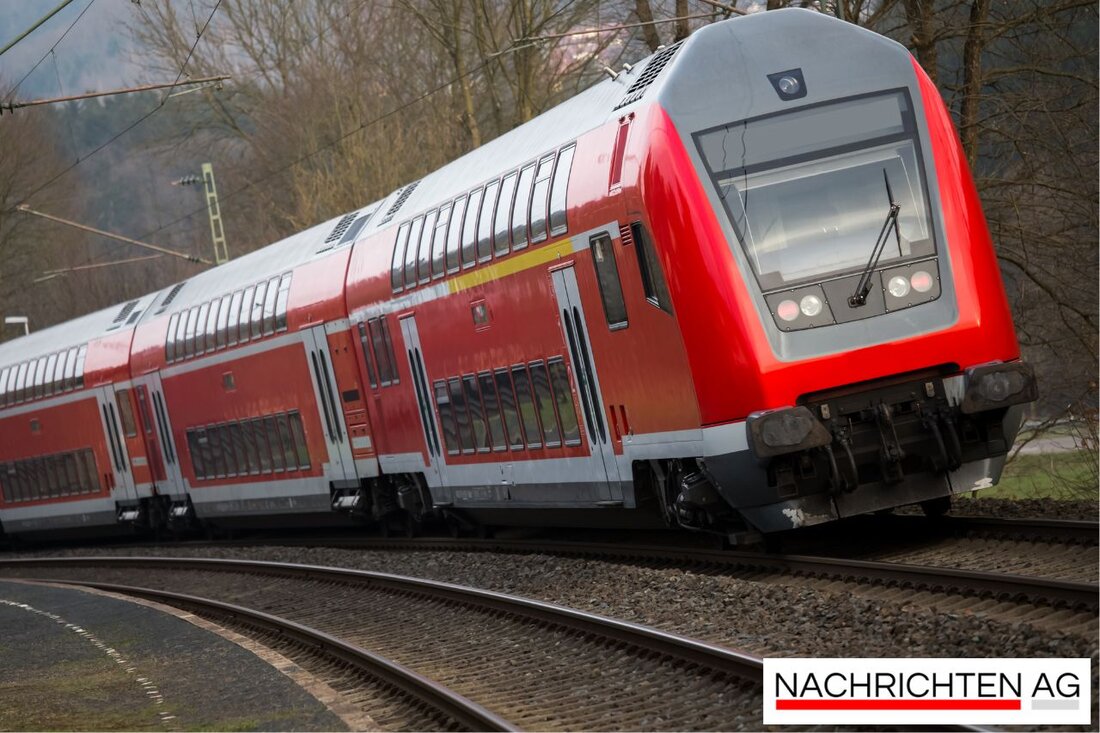Gabriel Kelly on his 13-hour train ride: An environmental dilemma!
Gabriel Kelly reports on his 13-hour train journey from Hamburg to Greifswald and the challenges of traveling by train.

Gabriel Kelly on his 13-hour train ride: An environmental dilemma!
What happened on the train? The musician Gabriel Kelly, known as the son of Angelo Kelly, talked about a surprisingly long train ride from Hamburg to Greifswald. His 13-hour journey began promptly at 12 p.m. and didn't end until 1 a.m. A true adventure that not only cost nerves, but also tested the traveler's environmental awareness. Kelly originally hoped to get to his destination quickly on the direct train from Berlin to Greifswald, but he quickly realized that Deutsche Bahn was struggling with challenges that many travelers know all too well. About [Ostsee Zeitung](https://www.ostsee-zeitung.de/lokales/vorpommern-greifswald/greifswald/gabriel-kelly-ueber-13-stunden-zugfahrt-von-hamburg-nach-greifswald-bin-selber- Schuld-TZDMZX5L5NG7TMYP23MCN2PHZ4.html) Kelly reports ironically: “It’s my own fault for traveling with Deutsche Bahn.”
The reasons for Kelley's long journey are varied. Train cancellations and rail replacement services made rapid transport impossible and added two additional hours to his journey. Meanwhile, he could have covered the distance by car in just two and a half hours. Nevertheless, Kelly decided to take the train in order to travel in a more environmentally friendly way. Although he associates his love of the train with positive aspects such as planned conversations and listening to music, this particular experience was anything but pleasant for him.
The situation of the railway: A look at the failures
Kelley's anecdote is not an isolated incident. The number of canceled long-distance trains has quadrupled in the last five years. According to a current response from the Ministry of Transport, quoted by Tagesschau, the proportion of canceled journeys in long-distance transport rose from 1% in 2019 to 4% in 2024. In regional transport this proportion was 5% last year. Many experts see the dilapidated infrastructure as the main cause of this development. Matthias Gastel, MP for the Green Party, expressed concern about the inadequate maintenance and late delivery of vehicles that are leading to the many breakdowns.
The numbers are alarming: in 2024 there were over 13,600 canceled long-distance journeys. Excitingly, more than 60 percent of these failures can be attributed to external causes such as labor disputes. In January, for example, almost half of the train cancellations could be attributed to strikes related to collective bargaining disputes. However, train passengers are usually informed about such cancellations in good time - a small ray of hope in the often gloomy reality of rail transport.
Changes in passenger numbers
Although traveling by train is a common means of transport, its popularity is declining: around 1.8 billion passengers traveled in 2023, which is significantly below the 2019 figures. The reasons for this are the sale of the DB subsidiary DB Arriva and challenges in acquiring customers. Despite these difficulties, efforts to double transport performance by 2030 in order to reduce emissions are in full swing, as can be found on Statista. The VAT reduction for rail tickets in 2020 failed to stabilize ticket prices, and since 2021 prices have increased again.
While Deutsche Bahn and its infrastructure face major challenges, Gabriel Kelly remains optimistic about rail travel. His journey may have been long and arduous, but in his heart he continues to strive for environmentally friendly mobility, even if the 13-hour drive didn't make it easy for him. Let's stay tuned to see how the situation in rail traffic will develop and whether future trips will be more pleasant for Kelly and other rail travelers.

 Suche
Suche
 Mein Konto
Mein Konto